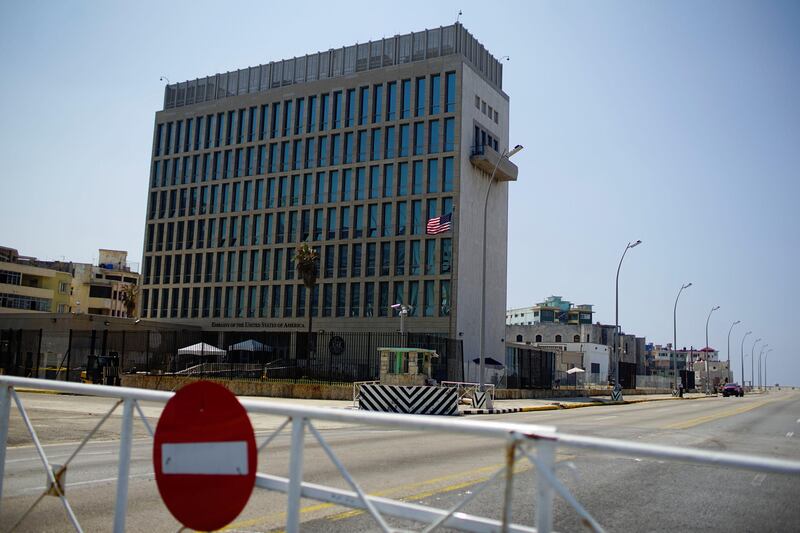The United States would be "putting people intentionally in harm's way" if it sent diplomats back to Cuba, secretary of state Rex Tillerson said, even as a new FBI report casts doubt on the initial theory that Americans there have been hit by "sonic attacks".
Following months of investigation and four FBI trips to Havana, an interim report from the bureau's operational technology division says the probe has uncovered no evidence that sound waves could have damaged the Americans' health. The report, dated January 4, does not address other theories and says the FBI will keep investigating until it can show there has been no intentional harm.
Mr Tillerson said he is not convinced that what he calls the "deliberate attacks" are over. He defended his September decision to order US personnel and their relatives to leave Cuba and said he will not reverse course until Cuba's government assures they will be safe.
“I’d be intentionally putting them back in harm’s way. Why in the world would I do that when I have no means whatsoever to protect them?” Mr Tillerson said. “I will push back on anybody who wants to force me to do that.”
“I still believe that the Cuban government, someone within the Cuban government can bring this to an end,” Mr Tillerson added. Washington has never claimed Cuba perpetrated the attacks but has insisted the island’s communist-run government must know who did. Cuba adamantly denies both involvement and knowledge of any attacks.
Tensions over the issue are apparent in Congress, with critics of the Cuban government at odds with supporters of closer US ties. And within the Trump administration, the CIA, whose spies were affected while working under diplomatic cover, has chafed at the lack of FBI progress, several officials have said in recent months, while a few lawmakers briefed on the probe have questioned whether the FBI even agrees with the state department that anyone was attacked.
The state department has said previously the most recent "medically confirmed" case of an American being affected occurred on August 21. Mr Tillerson did notcite any more recent incidents, but pointedly stressed he was "not sure they've ended."
Mr Tillerson’s comments and the FBI report illustrate how befuddled the United States still seems about the mystery in Havana, more than a year after embassy workers started reporting illnesses including hearing loss, vision problems and memory issues. Symptoms often followed unexplained sounds in diplomats’ homes that led investigators to suspect a futuristic sonic weapon. The US has said 24 government workers were harmed. Canada has reported some of its diplomats were affected, too.
The FBI report, which has not been released publicly, is the clearest sign to date of the US ruling out the sonic weapon theory. The report says the FBI tested the hypothesis that air pressure waves via audible sound, infrasound or ultrasound could be used to clandestinely hurt Americans in Cuba, and found no evidence. Infrasound waves are below the range of human hearing. Ultrasound is above.






